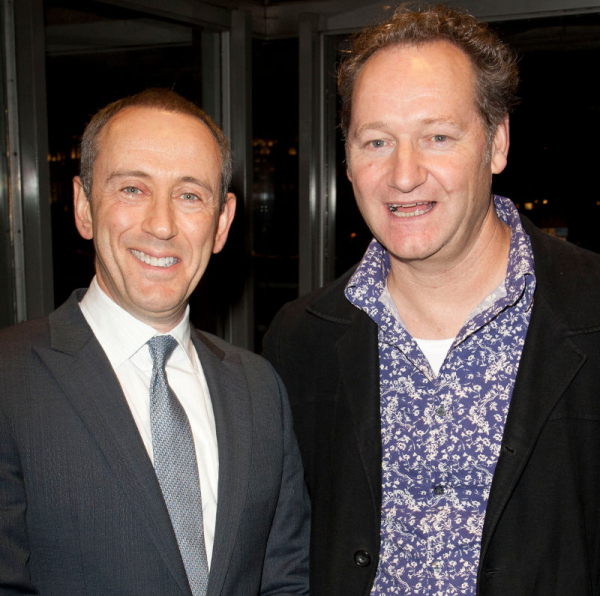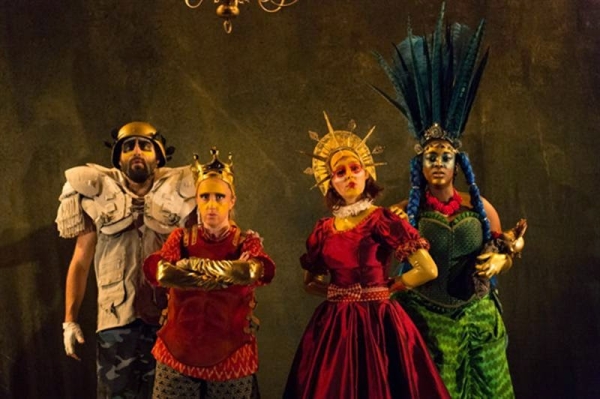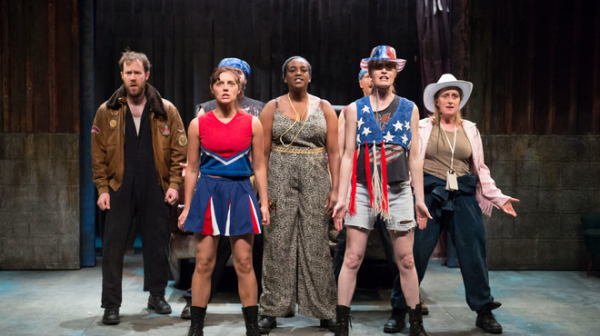Michael Coveney: National springs a surprise, Joan Plowright speaks up and Mark Lawson flays critics

© Dan Wooller
On the day after England's football team were eliminated from the World Cup and Rebekah Brooks was found not guilty of phone-hacking at the Old Bailey, the National Theatre announced a new play with an obviously ironically intended title, Great Britain.
Announced on Wednesday, opens on Monday! This is like some Living Newspaper hangover from the old days, and a brilliant riposte-cum-parting-shot from Nicholas Hytner – who directs Richard Bean's play – to those of us who thought, despite the new feeling of flexibility in The Shed (or "the temporary theatre" as we must now call it), that the NT was like an ocean-going liner that couldn't be manoeuvred into sudden lurches or new directions.
The last three performances of The Silver Tassie remain as in the published repertoire, the rest of the blank column in the Lyttelton schedule up to 23 August filled with a short rubric, "More Lyttelton performances to be announced."
The board must have been a bit nervous at seeing this virtually blank schedule for June. We should have known something was up: rehearsals with that large cast must have been like the samizdat theatre before the Velvet Revolution in Prague. Good on them: just hope the play doesn't come up as scratchy as it sort of sounds.
Lady Olivier holds court in the Orange Tree
Despite the best efforts of Transport for London to prevent me (the overground North London line was in chaos), and thanks to a bizarre taxi journey from Willesden Junction, I got to Richmond yesterday afternoon just in time for Joan Plowright's anecdotal conversation with Richard Digby Day in the Orange Tree, part of Sam Walters' farewell-after-40-years season.
Memories of Scunthorpe (who knew you could have memories of Scunthorpe, or even want them?) the Old Vic school, Orson Welles, living with Olivier in his pomp at Chichester and the National, touring to Moscow, working with Franco Zeffirelli and the point of acting ("Acting is an outlet for comedy and grief, and all the characters inside you") delighted a packed audience.
She sat stock still in her wheelchair, glasses off – she's totally blind now – like a benign Beckett character and spoke easily and frankly, gently probed by Digby Day. And her supporting cast "out front" was a genuine galère: her daughters Julie-Kate and Tamsin, Thelma Holt, Geraldine McEwan, Eileen Atkins, Delena Kidd and Gary Raymond, Nickolas Grace, Terence Stamp.
None of them mistook her for bustling first-nighter Blanche Marvin, a pictorial confusion still, astonishingly, being perpetrated online by the Telegraph… as well as by the Express and many other sites around the world. Time to clear up this indignity.
Nursie bows out
Patsy Byrne, who died aged 80 last week, succeeded Joan Plowright as Beatie Bryant in Roots, having made her London debut in the same play at the Royal Court when the Wesker trilogy transferred from the Belgrade, Coventry.
All the headlines, of course, were about her role as Nursie in Blackadder and the fact that she passed on to the Green Room in the sky shortly after another Blackadder stalwart, Rik Mayall; most obits included the Mayall line (as the lubricious Flashheart): "Nursie, I like it firm and fruity. Am I pleased to see you or did I just put a canoe in my pocket?"
But more recognition is due to her stage work at the Royal Court – not just in the Weskers, but in John Arden's Sergeant Musgrave's Dance and N F Simpson's One Way Pendulum – and at the RSC, where she started off playing Maria in Twelfth Night and stayed on to play Audrey in As You Like It, Bianca in Othello, Dunyasha in The Cherry Orchard and Grusha (one of her favourite roles) in Bill Gaskill's production of The Caucasian Chalk Circle. She was indeed firm and fruity, and wonderfully truthful, funny and transparent, too.
Lawson launches culture wars over Mr Burns
The most exciting, and imaginative, show of the year so far is Mr Burns at the Almeida, and while it's not strictly true to say, as Mark Lawson did in the Guardian last Saturday, that it has met with critical hostility and mystification, there has been a sense that if you're not a fan of The Simpsons cartoon series, you're somehow excluded from the experience.
Lawson cited three reviewers who suggested this – Tim Walker, Henry Hitchings and Michael Billington – while conveniently ignoring two reviewers who were pretty much up to speed on Bart, Homer and co, and the particular episode of Cape Feare referenced throughout Anne Washburn's play – Kate Bassett and Dominic Maxwell – but who weren't mad about the show anyway.

© Manuel Harlan
I don't think you have to have seen even one episode of The Simpsons to appreciate the meaning of the play, which is one of recovery and social binding through acts of cultural retrieval after an apocalypse, but Lawson's point is that the increased patchiness of the collective cultural memory is one reason why Tudor history – which, like The Simpsons, most people know something about – has become so popular
The critical reception for Mr Burns, says Lawson, illustrates the increasing discrepancies in general knowledge. But I'm not at all sure that a teenager unfamiliar with theatre would find Mr Burns easily comprehensible, as he suggests. People who love The X Factor didn't necessarily want to see I Can't Sing! (or enjoy it all that much if they did; Mr Burns has a similarly "arty" relationship with the cartoon). And behind all this is the assumption that theatre critics "don't get out much" or watch any television.
Even if they don't watch The Simpsons, this is an accusation almost as trite and condescending as Ken Loach's the other day when he said that film critics were too busy watching films to know anything about real life or make any meaningful contribution to society. Like what he does. Oh dear.













